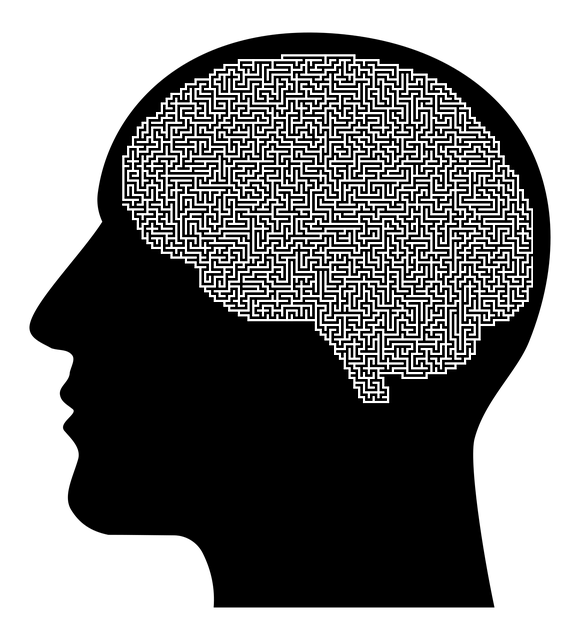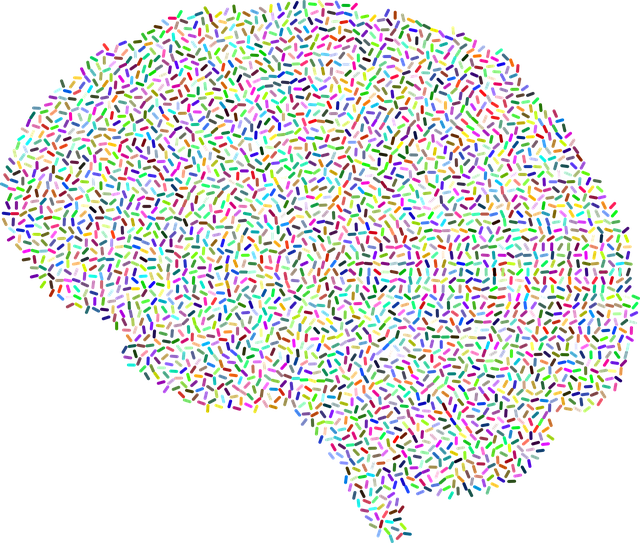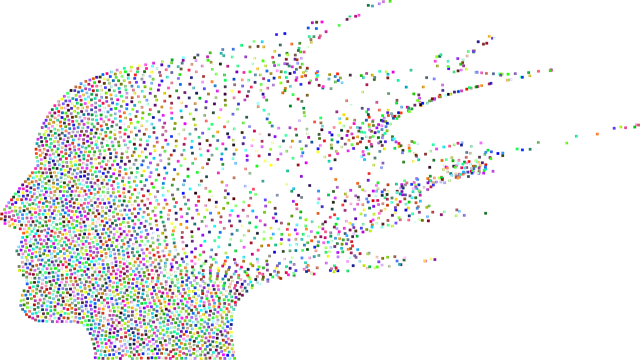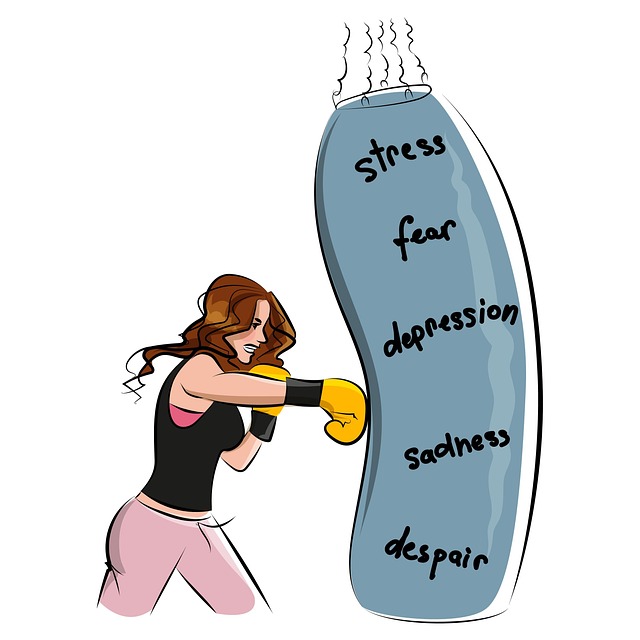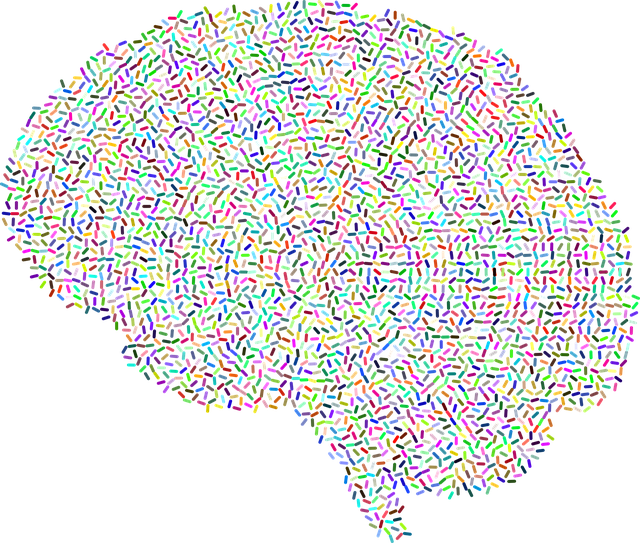Media portrayal of mental health significantly impacts societal understanding, with positive representations fostering empathy and early intervention while negative portrayals perpetuating stigma. Englewood Cognitive Behavioral Therapy (ECBT) addresses this by promoting accurate, empathetic narratives through programs like Inner Strength Development and Mental Wellness Coaching. ECBT uses evidence-based techniques to challenge stereotypes, empower individuals, and improve coping mechanisms, ensuring media portrayal aligns with reality. Strategies for more compassionate media representation include integrating ECBT into production, collaborating with mental health professionals, encouraging dialogue through journaling, prioritizing recovery stories, and providing education to the media industry.
In today’s media landscape, the representation of mental illness is crucial for fostering understanding and reducing stigma. This article explores the profound impact of media portrayal on mental health perceptions and offers solutions to challenge stereotypes. We delve into Englewood Cognitive Behavioral Therapy (ECBT), a comprehensive approach proven effective in treating various mental health conditions. Additionally, we provide strategies for enhancing accurate and compassionate media representation, emphasizing the importance of diverse, realistic portrayals for improved public awareness and support.
- Understanding the Impact of Media Portrayal on Mental Health
- Englewood Cognitive Behavioral Therapy: A Comprehensive Approach
- Strategies for Enhancing Accurate and Compassionate Media Representation
Understanding the Impact of Media Portrayal on Mental Health

Media portrayal plays a significant role in shaping societal perceptions about mental health, significantly influencing public understanding and attitudes towards individuals living with various conditions. The way mental illness is depicted in films, television shows, literature, and news articles can either perpetuate harmful stereotypes or foster empathy and support. Positive representations, such as those showcasing recovery stories and the resilience of people with mental disorders, have the potential to inspire hope and encourage early intervention. Conversely, negative or inaccurate portrayals can lead to stigma, discrimination, and a lack of trust in seeking professional help.
Englewood Cognitive Behavioral Therapy (CBT) recognizes this impact and strives to challenge typical media narratives by promoting accurate and empathetic representations. By integrating Inner Strength Development and Mental Wellness Coaching Programs, CBT practitioners empower individuals to navigate mental health challenges while building resilience. Encouraging open conversations about mental wellness is a step towards breaking down societal barriers, ensuring that people with mental illness are seen not just as victims but as individuals capable of growth and recovery, much like media can shape perceptions for the better.
Englewood Cognitive Behavioral Therapy: A Comprehensive Approach

Englewood Cognitive Behavioral Therapy (ECBT) offers a comprehensive approach to addressing mental illness in media representation. By focusing on evidence-based techniques, ECBT challenges stereotypical portrayals and promotes accurate, empathetic narratives. This therapy incorporates various tools tailored to individual needs, such as cognitive restructuring, behavioral activation, and mindfulness strategies. These techniques empower individuals to manage symptoms, improve coping mechanisms, and foster a sense of agency.
The program also emphasizes the importance of positive thinking and Mind Over Matter principles, encouraging clients to reframe negative thoughts and beliefs. Moreover, ECBT facilitates stress management workshops within organizations, aiming to create supportive environments both personally and professionally. This holistic approach ensures that individuals with mental health challenges are represented accurately in media while equipping them with valuable tools for their personal growth and well-being.
Strategies for Enhancing Accurate and Compassionate Media Representation

To enhance accurate and compassionate media representation of mental illness, several strategies can be implemented. Firstly, Englewood Cognitive Behavioral Therapy (ECBT) and other evidence-based therapeutic approaches should be integrated into media production. This ensures that storylines involving mental health are grounded in reality, promoting a deeper understanding among audiences. By collaborating with mental health professionals, including therapists and psychiatrists, media creators can obtain valuable insights into the nuances of various conditions, fostering more nuanced and empathetic portrayals.
Additionally, incorporating Mental Wellness Journaling Exercise Guidance within narratives can offer viewers relatable content and encourage open dialogue about mental health. Media platforms should also prioritize showcasing recovery stories, dispelling stereotypes, and providing a balanced perspective. Risk Assessment for Mental Health Professionals is crucial in ensuring safe and responsible representation. Moreover, designing Mental Health Education Programs tailored to the media industry can equip creators with the knowledge to address sensitive topics with care, ultimately contributing to more compassionate media representation.
Media representation plays a pivotal role in shaping public understanding of mental health. By adopting strategies that promote accurate and compassionate portrayal, we can foster an environment that reduces stigma and encourages support for those struggling with mental illness. The Englewood Cognitive Behavioral Therapy (ECBT) approach offers a comprehensive framework for addressing these challenges, emphasizing the importance of nuanced storytelling and empathetic coverage. Through collaborative efforts between media professionals, healthcare providers, and community advocates, we can create a more inclusive and supportive narrative that reflects the reality of mental health experiences.

